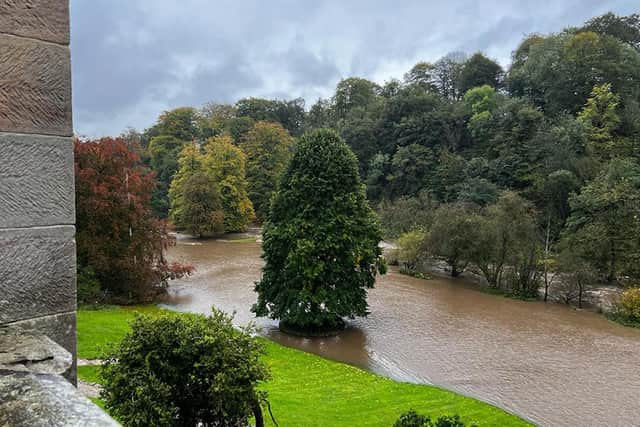The Environment Agency isn’t a watchdog but a poodle more interested in newts - David Behrens
The great crested newt is an endangered species and therefore a priority for officials. Farmers are an endangered species, too, but you wouldn’t have thought so from the way they’re treated.
Here’s what I mean. Seven weeks have passed since a month’s worth of rain was dumped on parts of Yorkshire in the space of 72 hours by a storm the forecasters insisted on calling Babet, as if it were a film starlet. A week later came another storm. After one of the wettest autumns anyone can remember, this was rubbing salt into the wounds.
Advertisement
Hide AdAdvertisement
Hide AdHere in the flatlands of rural East Yorkshire, the extent of the washout is plain to see. Where there should be crops there is water. Fields have become indistinguishable from reservoirs except that reservoirs are more easily emptied.


Ask anyone around here whose fault this is and they will point not to the heavens but to the Environment Agency, whose job it is to ensure the becks and ditches are kept clear so that excess rainwater can flow naturally out to sea. The evidence suggests, however, that these watercourses are as full of detritus as an official at an inquiry.
And it’s not just an agricultural problem because if water has nowhere to go it will eventually flood the roads, then someone’s garden and finally your house.
This has happened in communities across the country but one case stands out as a monument to misplaced priorities. This is Severn Stoke, a chocolate box village of thatched cottages in the Malvern Hills whose houses and church have been flooded more times than they can count.
Advertisement
Hide AdAdvertisement
Hide AdThe Environment Agency finally promised them a flood defence scheme but work was halted when soil that was being moved to make an embankment was found to contain a colony of newts – and the agency’s interpretation of the law was that their welfare was more important than that of the villagers.
It isn’t an isolated example. In my own village a building project was held up for similar reasons and it took months before a simple matchstick contraption to redirect the newts – a structure knocked up in five minutes flat – could be signed off by inspectors.
Yet no such consideration is afforded to vegetable growers. On the contrary, the National Farmers’ Union has had to step in to demand the agency start dredging watercourses proactively, not waiting until it’s too late.
Meanwhile, officials who will pull on their yellow jackets at the first sign of a threat to protected wildlife are nowhere to be seen when outrages are perpetrated against the community at large.
Advertisement
Hide AdAdvertisement
Hide AdThis week saw the revelation that the agency failed to visit 90 per cent of toxic spills in the previous 12 months, including two-thirds of the most serious incidents.
We also learned that inspectors seldom turned up in person to investigate sewage discharges, relying instead on information supplied by firms with vested interests.
The BBC reported that the water company United Utilities understated the seriousness of sewage pollution to such an extent that it earned itself £5m for meeting environmental targets when the agency blindly signed off its figures.
This caused politicians to fulminate that it was toothless but it was a truth they had long known. Back in 2014, the Yorkshireman Eric Pickles, then Communities Secretary, had to apologise for heeding Environment Agency advice not to dredge rivers in the Somerset Levels – a decision that led directly flooding all the way to the Thames Valley.
Advertisement
Hide AdAdvertisement
Hide Ad“We thought we were dealing with experts,” Pickles admitted ruefully.
Yet any attempts to make the agency behave like a watchdog instead of a poodle have been fruitless – literally so in the case of growers despairing at their lost crops. A year after Pickles’ damning assessment his own government put it in the charge of Sir James Bevan, a Foreign Office mandarin with no apparent agricultural background, whose interest in leaks seemed to go no further than stemming seepages of information from his malcontent staff.
Bevan stepped down earlier this year and his legacy is an organisation with a reputation more deeply mired than all the fields of the East Riding. He’s probably held in high regard by newts, though.
And if you think this is of little consequence, wait until next summer when there’s no veg on the shelves and probably a hosepipe ban because the water leaked in the wrong places. What a shower.
Comment Guidelines
National World encourages reader discussion on our stories. User feedback, insights and back-and-forth exchanges add a rich layer of context to reporting. Please review our Community Guidelines before commenting.